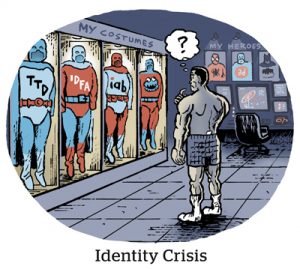AT&T defended its acquisition of Time Warner in court by saying it needed to compete against digital giants like Facebook and Google.
By creating a scaled addressable TV platform to secure brand advertising dollars as well as performance spend, the merged companies could help AT&T stave off Google and Facebook. The two digital giants largely subsist off performance spend but have been making plays for the brand dollars typically allocated to TV.
Time Warner gives AT&T’s ad platform a pool of content, similar to Google’s buying platform, DoubleClick Bid Manager, and YouTube. Extending an AT&T identifier across that content provides addressability at scale, associated with highly premium content.
“Nothing beats the safety, quality content and accountability of what AT&T can offer to build a brand and persuade a consumer,” said Tracey Scheppach, CEO and co-founder of Matter More Media.
That promise of addressability and quality TV shows led GroupM Global CEO Kelly Clark to welcome the merger.
“We hope it is a big step on the road to complete addressability in premium video content,” Clark said. “Our clients want the highest-quality programming informed by the highest-quality data with the least amount of waste.”
No scaled addressable TV offerings are available to advertisers.
AT&T offers data targeting and addressable TV, Scheppach said, but lacks scale. She has been working with AT&T on addressable TV since 2010.
“AT&T’s current addressable TV and cross-platform offering is amazing…we just need more inventory,” Scheppach said.
That’s where Time Warner content will help.
“ATT will need to fully deploy their data targeting and addressable TV solutions to all Time Warner content … to transform [TV] and better compete with Facebook and Google,” Scheppach said.
And if AT&T manages to create a scaled addressable TV offering, it can lure major brand advertising dollars.
“AT&T combined with Time Warner plans to own those big-brand budgets and let Google remain as the de facto [direct-response] powerhouse,” said Forrester senior analyst Susan Bidel. The merger prepares AT&T for the “fast-approaching day” when marketers will want to spend brand budgets in addressable environments with premium content.
Dave Morgan, founder and CEO of advanced TV company Simulmedia, also sees potential for AT&T to capture performance marketing budgets.
“Given the massive scale advantage of TV today, AT&T will win if they can make TV advertising as predictable, provable, performant and integrated into the enterprise as search as social.”
To do that, AT&T will need to build a tech stack with “full digital-like targeting, measurement and optimization for all of their linear and addressable TV ad inventory,” Morgan said.
Although the merger was just approved Tuesday, AT&T already has a head start: The company started strategizing about a TV ad platform when it hired AT&T Advertising CEO Brian Lesser just under a year ago. Lesser has since built a team focused on the company’s budding addressable TV platform.















